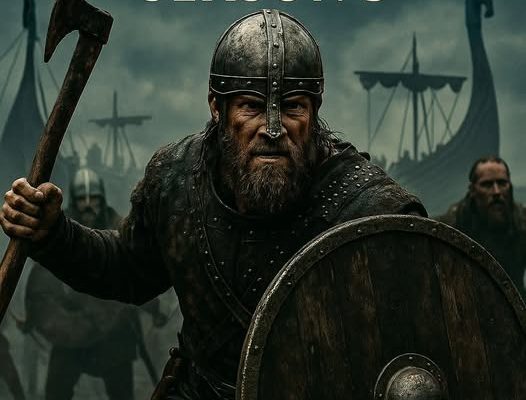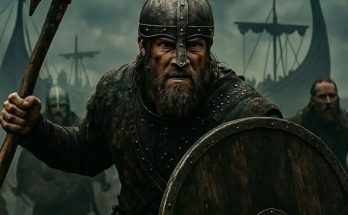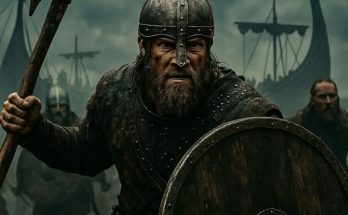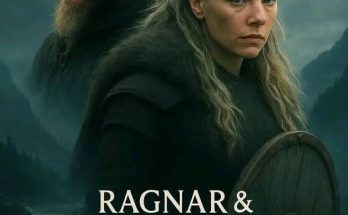Vikings: Valhalla has been one of the most talked about historical drama series in recent years, carrying the legacy of the original Vikings series while introducing a new generation of characters and storylines. When Netflix first announced the project, many fans were both excited and skeptical. Could a follow-up really capture the raw grit, intensity, and cultural significance of the original? With two seasons under its belt, the show has established itself as more than just a successor; it has carved its own identity, focusing on a timeline set over a century after Ragnar Lothbrok’s saga. Now, the buzz is back as Netflix officially confirms that Vikings: Valhalla will return with Season 3, setting off waves of excitement for fans who have been eagerly awaiting the next chapter. The confirmation of the release date is not just about new episodes—it is about continuing a narrative that explores the complex, brutal, and deeply human stories of warriors, kings, and settlers during a turning point in European history.
The announcement of Season 3 feels significant because the show has managed to stand at the crossroads of entertainment and history. While it dramatizes events for television, it also draws inspiration from real people and real struggles that defined the Viking Age and the early medieval period. This approach is one of the reasons fans are hooked. They know they are watching fictionalized accounts, but they also get glimpses into how Europe was shaped during a critical moment. The characters of Leif Eriksson, Freydís Eiríksdóttir, Harald Sigurdsson, and others have given audiences powerful archetypes of ambition, loyalty, love, and survival. Each season has deepened their stories, showing how Norse culture was being tested by the spread of Christianity, the rise of centralized kingdoms, and the endless struggle for power that defined the era. Season 3, now officially set to release, promises to build on these themes and bring more intensity to the screen.
The original Vikings series aired on the History Channel before moving to Amazon Prime, and it established an entire fanbase around dramatized Norse legends. When Netflix took on the responsibility of producing Vikings: Valhalla, it was stepping into big shoes. Many wondered if the platform could deliver the same kind of storytelling while appealing to both casual viewers and hardcore history enthusiasts. The first season, released in 2022, showed that the formula worked. By the second season, Netflix had already cemented Vikings: Valhalla as one of its flagship historical dramas. The decision to renew for a third season was, in many ways, inevitable. Audiences wanted more, and Netflix recognized the cultural and entertainment value of extending the story. The official release date confirmation now gives fans something concrete to anticipate, fueling discussions, theories, and predictions about what is coming next.
The appeal of Vikings: Valhalla lies not only in its story but also in its timing. Streaming audiences have shown consistent appetite for historical dramas that combine action, romance, and political intrigue. Series like The Last Kingdom and Barbarians have proven that there is a massive global interest in stories set in early medieval Europe. Vikings: Valhalla taps into this appetite while distinguishing itself with its unique focus on the Viking diaspora and the clash between pagan traditions and Christian dominance. The characters embody these cultural tensions, making every conflict feel layered and meaningful. This is why the confirmation of Season 3 is more than just an announcement—it is a reassurance that audiences will continue to see these complex dynamics explored.
The showrunners have hinted that Season 3 will bring both closure and expansion to the storylines introduced so far. Leif Eriksson, historically remembered as the explorer who reached North America, has been slowly developing into the legendary figure we know from history books. His journey in the series has been marked by tragedy, resilience, and the search for purpose. Fans are curious to see how the writers will balance his personal development with the larger geopolitical conflicts that continue to unfold across Northern Europe. Freydís, on the other hand, has emerged as a symbol of Norse identity and resistance. Her story is not just about personal revenge or survival but about preserving cultural traditions in the face of overwhelming pressure from outside forces. Harald’s ambition to become a ruler has also been a central thread, and many expect that Season 3 will push him further toward his destiny as Harald Hardrada, one of the last great Viking kings. By weaving these personal arcs with historical milestones, the show gives audiences both emotional investment and historical spectacle.
Netflix’s confirmation of the release date also carries strategic significance. Streaming platforms thrive on momentum, and for a show like Vikings: Valhalla, keeping fans engaged between seasons is crucial. The official date allows Netflix to ramp up marketing campaigns, release teasers, and build anticipation through trailers and behind-the-scenes content. Fans are already flooding social media with theories, and the conversation will only grow louder as the premiere approaches. The buzz around the series shows that historical dramas, when executed with quality and depth, can generate global engagement comparable to fantasy blockbusters. In fact, Vikings: Valhalla often appeals to the same audience that enjoys shows like Game of Thrones or The Witcher, but with the added hook of real history behind the drama.
Beyond the entertainment factor, Vikings: Valhalla has also contributed to the broader cultural fascination with Norse mythology and history. From video games to literature, the Viking Age has become a fertile ground for creative storytelling in recent decades. What makes Valhalla unique is how it blends mythic resonance with grounded realism. It does not shy away from showing the brutality of the era—the violence, the betrayals, the harsh conditions of life—but it also celebrates the courage, loyalty, and spirit of exploration that defined the Norse people. This balance keeps the show from falling into cliché, giving audiences both thrilling battles and meaningful human drama. With Season 3 confirmed, fans are eager to see how the show continues to navigate this delicate balance.
Another reason the announcement feels important is the global reach of Netflix. Unlike the original Vikings series, which had to travel between networks and platforms, Valhalla is designed for a worldwide audience from the start. This means the show does not just resonate with Scandinavian history buffs or North American fans—it is watched by millions across Europe, Asia, Africa, and beyond. The stories of migration, cultural clashes, and survival are universal, which explains the wide appeal. As Season 3 approaches, Netflix is likely to lean into this global fanbase, perhaps even highlighting the historical connections that different regions have with the Viking Age. After all, the Vikings traveled far beyond Scandinavia, leaving traces in England, Ireland, France, Russia, and even parts of the Middle East. These global connections enrich the viewing experience, making the show feel bigger than a localized historical drama.



